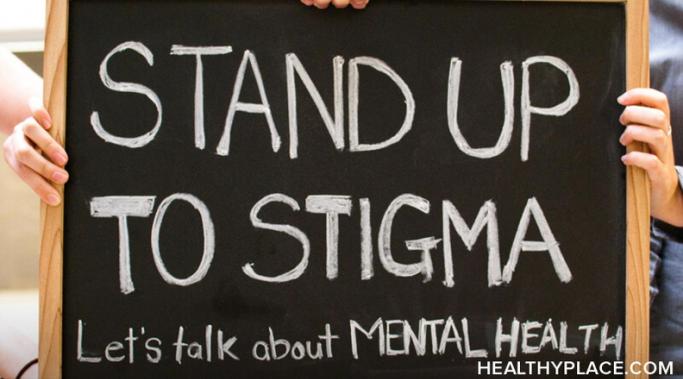Some people aren’t sure where to start when they want to talk about mental health or illness with a loved one. Knowing how to talk about mental illness is important, but broaching the subject can be difficult for all parties involved. Whether you’re on the mental illness or mental wellness side of the equation, stress over the talk can lead to not having the conversation at all or going about it all the wrong way. Is there a good way to talk about mental health?
How to Combat Stigma
As I said in the first two parts of this series, parents and guardians want to help their children through their struggles, and that includes knowing how to help children cope with mental health stigma. In the previous installments, I discussed how you can make sure you’re not inadvertently stigmatizing your child and then how to talk with your child about mental illness stigma. There are plenty more things that parents can do to help their children facing mental illness stigma but to conclude I want to touch on a few more things that can be done right now.
When I was a child dealing with mental health stigma, I didn't really know what it was that set me apart. As a young adult, I have a better perspective on the mental health stigma your child faces. Although I’m not a parent or guardian of a child facing mental health stigma, I have a clear memory of how stigma affected me as a child. Plus, I've seen what my parents have gone through as I lived with mental illness at a young age. I also read posts and hear from parents and guardians who have children that suffer or live with mental health problems and it's heartbreaking to witness as they grapple with trying to help their child and feeling powerless to do so. So when I can, I try to help. I hope some of the tips that follow are ones you find helpful as you navigate your child’s mental illness and the potential mental health stigma your child can face.
Playing the what-if game isn’t always the greatest of ideas, especially for those of us with mental illnesses that cause us to get stuck in the what-if mindset. But humor me for a second (or rather this post) because while playing the what-if game can be detrimental, I think there is some good to it sometimes and in this case, I think it’s one of those times. What if mental illness stigma never goes away? What then?
Coping with a breakup after telling someone you love, whether it be a friend, family member, or romantic partner, that you have a mental illness is never easy. The scariest time is right before I tell anyone about my mental illnesses. It is always thoughts like “What if they think less of me?”, “What if they suddenly don’t want to be around me anymore?”, “They're going to see me as a burden.” that make me anxious. You could probably name many other anxious thoughts and I could say I thought them, too. Ultimately, these fears of a breakup are based on mental health stigma, and coping with a breakup due to mental health stigma may be the most heartbreaking of all.
Many xon't know this, but a mental health community can reduce the impact of stigma. One thing that mental illness is really good at is making a person feel isolated and alone, which is a perfect way for stigma and self-stigma to thrive. There are a number of ways to combat that, such as reading more about the illness to learn the facts versus the fiction. But another way to effectively combat whatever sort of stigma comes along is to immerse oneself in a mental health community to reduce the impact of stigma and connect with others who have similar experiences.
There are many ways that fitness can help you fight mental health stigma. One of the ways people form stigmatizing beliefs about those with mental health issues is that they think they are lazy for not working or engaging in society. Mental health stigma makes people believe these myths, but myths can be busted by more individuals who have a mental illness getting healthy exercise and improving their fitness levels.
It is important to arm yourself with knowledge so you can fight mental health stigma whenever you encounter it. You may be seeking this knowledge for many reasons: for yourself, for a family member, or for people you work around or interact with who have a mental illness. By seeking knowledge on mental health, you can stop stigmatizing beliefs on the spot when you encounter people who have misunderstandings or believe mental health myths. By arming yourself with knowledge, you can help stop mental health stigma.
More and more, people push for discussing mental health with children and to include education on mental health, mental wellness, and mental illness in the classroom and outside of it (Where is Mental Illness Education?). I wholeheartedly agree with this idea because it has the potential help children recognize mental health trouble in themselves and in others, and to know there is something that can be done if they’re struggling. Another big reason for the push is the aim to reduce stigma, but I can’t think of an instance in which it was said there should be lessons about stigma, too. Discussing mental health stigma is just as important as talking about mental illness.
While people generally don't mean any hard by saying "stay strong" to those with mental illness but talking about willpower can contribute to mental health stigma. Implying being strong enough lets you overcome mental illness can be problematic (Mental Illness Can Zap Motivation). Find out why the concept of willpower can contribute to Mental Health Stigma.









